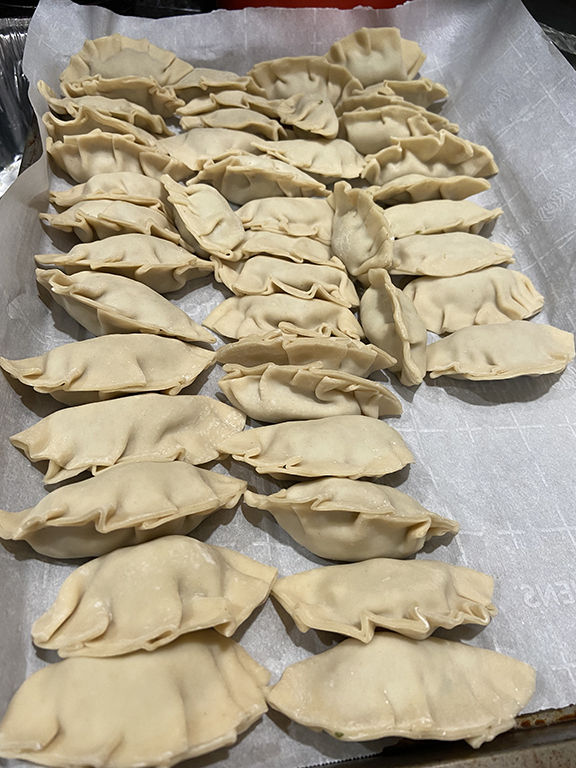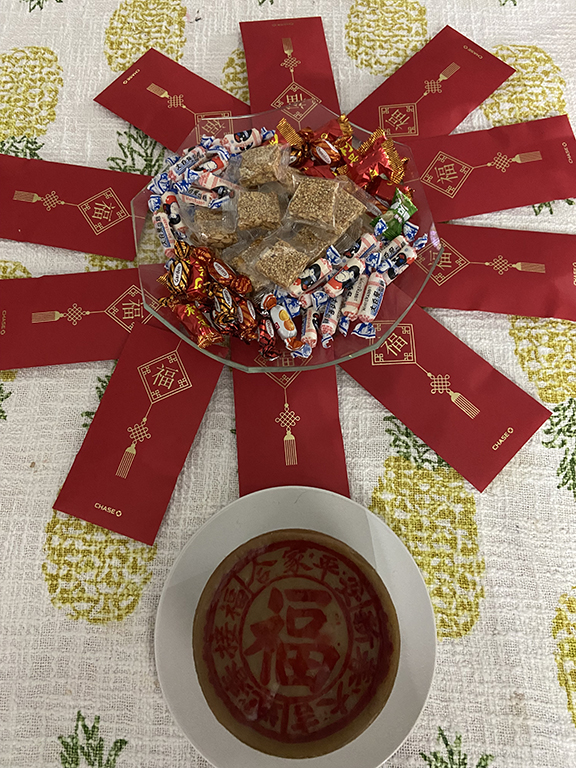By Nina Huang
NORTHWEST ASIAN WEEKLY
Lunar New Year or Spring Festival is widely celebrated among many Asian countries including China, Taiwan, Vietnam, and others, but the holiday is also known for its unique customs and traditions. As we prepare to welcome in the Year of the Dragon, we talked to a few folks in the community about their own family traditions and superstitions that they believe in.
Eating auspicious foods
Sean J. and his family always eat fish and oranges as a family. Fish in Chinese is “yu” which is the same sound as surplus, so eating fish means one will have extra money in the new year.
Oranges, kumquats, tangerines and pomelos are common Lunar New Year fruits to eat because they’re believed to bring good luck and happiness. The Chinese words for orange and tangerine closely resemble the words for luck and wealth. The gold color also symbolizes prosperity.
Mandy C. and her family always eat lucky foods such as steamed fish, shrimp, and fat choy (hair-like vegetable) because of the auspicious meanings.
“We eat it because it sounds like “fa tsai” and we eat shrimp because “shiao xia xia,” Mandy C. shared, referring to laughter and joy.
Other lucky foods include dumplings because they resemble the yuan, the traditional Chinese money form, longevity noodles for long life, spring rolls for wealth, sticky rice dumplings for togetherness, a whole chicken for prosperity, and sticky rice (nian gao) for a higher income or higher position.
Avoid cutting/washing hair
Mandy C. also shared that one shouldn’t wash their hair on the first day of the Lunar New Year, as it is seen as a negative thing to “wash one’s fortune away” at the beginning of the year. In addition, some avoid cutting hair on this day as well.
Hair is “tao fat” and “fat” means luck in Cantonese, so cutting your hair is basically cutting away your luck, Kevin C. said.
To prepare for the new year, many people like to get a haircut or new hairstyle for a new look in the coming year.
No cleaning/sweeping the floors
For some families, it’s important to clean the house before the first day of the Lunar New Year. The idea is to get rid of the bad spirits and not to carry the old stuff into the new year. However, the cleaning should only be done before and not on the day of. Cleaning of any kind is forbidden. You’ll want to throw out the trash, sweep the floor, or wash your dishes on the second day.
Don’t give an odd amount of money in a red envelope
Chinese people like even numbers, with the traditional belief that good things come in doubles. They also tend to avoid unlucky numbers like 4 or 40, as 4 sounds like death in Chinese.
Kevin C. shared that he never gives red envelopes with $4 or $24, because it’s bad luck.
Setting the tone for the new year
“For Vietnamese New Year, the first person to enter your home sets the tone and energy for the rest of the year,” Tri L. shared.
Tina P. recalled a similar memory of how her and her family would celebrate Lunar New Year at the temple, and then when they got home, her parents would walk around their property and then go inside first at midnight.
Many people also like to don new clothes on the first day of the new year, as well as wear red for good luck. Red is an auspicious color as it boosts luck and wards off evil spirits.
Other Lunar New Year superstitions
Tina P. also added that one should pay off your debts to not owe people money or you’ll be in debt all year long.
Jacklyn W. shared that one shouldn’t buy shoes during the new year because in Chinese, it sounds like “sighing” and is bad luck.
Also, if you break something into pieces, you say, “swei swei ping an,” which means peace and safety every year to avoid bad luck. The “swei swei” part sounds the same as the Chinese character for breaking.
Uyjien U. remembers to not get sick during the Spring Festival to avoid being sick the entire year.
Mei-Sin K. also said, “No arguments, scolding, or crying for 15 days. That’s why kids love Chinese New Year.”
Nina can be reached at info@nwasianweekly.com.





